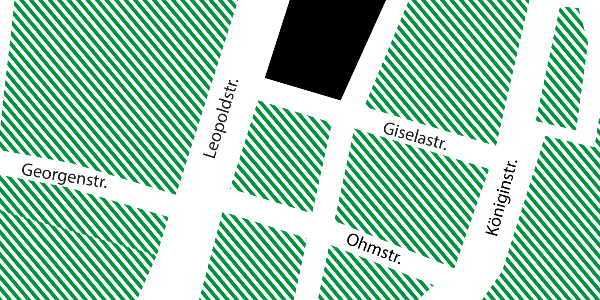Akademische Karrieren: „Den eigenen Weg bewusst wählen“
Weiterlesen
Ein abwechslungsreiches Programm erwartet euch: In interaktiven Workshops, Vorträgen und individuellen Beratungsgesprächen erhaltet Ihr wertvolle Informationen zu Fördermöglichkeiten und Einblicke in unterschiedliche berufliche Perspektiven. Erfahrene Coaches, Vertreterinnen und Vertreter von Förderorganisationen und ehemalige Postdocs teilen ihr Wissen und ihre Erfahrungen und geben praxisnahe Tipps für die nächsten Schritte.
Daneben bietet die Veranstaltung zahlreiche Gelegenheiten zum Austausch mit anderen Postdocs und mit den Postdoc-Services der LMU.
Datum: 10. Dezember 2025
Uhrzeit: 09:00 - 18:00 Uhr
Ort: Biomedical Center (BMC), Großhaderner Str. 9, 82152 Planegg-Martinsried
Zielgruppe: Postdocs
Download: Programmübersicht (PDF, 470 KB)
Networking-Messe & Living Library
Postdoc Career Day-Messe
Im Rahmen des Postdoc Career Day der LMU bist du herzlich eingeladen zur Postdoc Career Day-Messe – einer besonderen Gelegenheit, die vielfältigen Unterstützungsangebote an der LMU und in der Münchner Forschungslandschaft kennenzulernen.
In einer zweistündigen Mittagsveranstaltung hast du die Möglichkeit, mit Vertreterinnen und Vertretern zentraler Serviceeinrichtungen und Netzwerke ins Gespräch zu kommen, darunter:
- Referat für Forschungsstrategie der LMU
- Referat für Forschungsförderung der LMU
- Referat für Transfer der LMU
- Zentrales Diversity Management der LMU
- LMU Career Service
- LMU Center for Advanced Studies (CAS)
- LMU Center for Leadership and People Management (CLPM)
- LMU Frauenbeauftragte
- Innovation and Entrepreneurship Center der LMU
- Munich Postdoc Network (MPN)
- German Postdoc Network (GPN)
- BioM – Biotechnologie-Cluster
Nutze die Messe, um dich über Fördermöglichkeiten, Karrierewege und Qualifizierungsangebote zu informieren und zentrale Ansprechpartnerinnen und -partner kennenzulernen.
Komm vorbei, knüpfe Kontakte und gestalte deine nächsten Karriereschritte aktiv mit!
Living Library: Echte Menschen, echte Geschichten, echte Inspiration
Hast du dir schon einmal gewünscht, dich mit jemandem auszutauschen, der bereits den Weg eingeschlagen hat, über den du gerade nachdenkst?
Beim Postdoc Career Day ist genau das möglich: In unserer Living Library kannst du keine Bücher, sondern echte Menschen „ausleihen“ – für persönliche Gespräche in entspannter Atmosphäre.
Unsere „Living Books“ sind ehemalige Postdocs, die erfolgreich in unterschiedliche Karrierewege gestartet sind – in Wissenschaft, Industrie, Unternehmertum und Kultur, in NGOs, im Wissenschaftsmanagement und in anderen Bereichen. In kleinen, informellen Gesprächsrunden teilen sie ihre persönlichen Erfahrungen, Einblicke und Erfahrungen mit dir – authentisch, ehrlich und praxisnah.
Ganz gleich, ob du mögliche Berufswege erkunden oder einfach neue Impulse mitnehmen möchtest – die Living Library bietet dir Raum für Austausch, Orientierung und neue Perspektiven.
Besuche unsere Living Library – und entdecke dein nächstes Kapitel.
Messe und Living Library sind offen für interessierte Postdocs aller Forschungseinrichtungen.
Zeiten: 12:00 - 14:30 Uhr
Ort: Foyer
Speeddating
Beim Speeddating kommt ihr schnell und unkompliziert ins Gespräch mit den Beraterinnen und Beratern des Referats für Forschungsförderung.
In kurzen Beratungsgesprächen erhaltet ihr Antworten auf eure Fragen und erste Tipps und besprecht die nächsten Schritte der Antragstellung.
Speeddating-Sessions: 12:00 - 14:00 Uhr
Orte: Raum N02.013 & Raum N02.014



